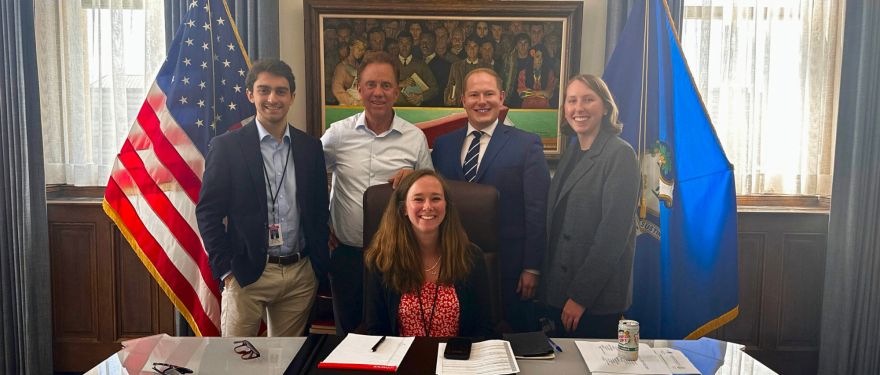Brandon Moore (MBA/MPP 2025) shares his experience in public service and why he decided on the joint degree program with Harvard Business School and Harvard Kennedy School. The MBA/MPP and MBA/MPA-ID are three-year programs that combine the core curricula of the HBS MBA and HKS degrees with a wide range of elective options from both schools.
What was your background before attending Harvard Business School?
I was a helicopter pilot! Upon graduating from West Point in 2014, I commissioned as an Army aviation officer. My service brought me from frigid upstate New York winters to the Korean DMZ to rural Afghanistan. To call these experiences life-changing would be an understatement. However, it was the people I served alongside that had the greatest impact on me. From aircraft mechanics to pilots to senior officers, these folks were truly America’s finest. They taught me lessons in humility, perseverance, and grit. After eight years surrounded by genuine selflessness and patriotism, my separation was bittersweet. But as I applied to graduate schools, veterans spent countless hours helping me along the way. It is a fact: I would not be here today if it weren’t for their mentorship. So as I reflect upon my background, two things immediately come to mind: 1) I remain eternally grateful for the veteran community and 2) I REALLY miss flying Apache helicopters!
Why did you decide on the HBS/HKS Joint Degree program?
It is difficult to overstate the impact potential of a public sector career. It’s achievable no matter the scope of your position. Whether you’re a local city councilor, state legislator, or U.S. Secretary of State, every day at work is another opportunity to improve the lives of others. In considering my own career, I realized the extent to which our biggest problems demand public-private cooperation. We’ll only achieve our climate goals if private firms develop innovative technologies and public regulators keep a tight lid on emissions. Similarly, policymakers cannot fix our country’s wage gaps without real support from employers. Public-private cooperation is a precondition for progress. Knowing that the joint MBA/MPP best equips future leaders with this mindset of cooperation, I pursued the HBS/HKS Joint Degree program.
You pursued a summer internship after your first year of the HBS/HKS program, with support from the Social Enterprise Summer Fellowship Program. How did your summer internship help you move forward with you career goals?
While on active duty, I had very limited exposure to policy areas outside of national security. I therefore decided to jump head-first into the state policymaking process. This past summer I joined Connecticut Governor Ned Lamont’s team as a strategic policy fellow. Focusing on workforce development, with specific attention to expanding employment resource access for low-income job seekers, I learned a ton! But it was the human aspect of the job that meant most to me. I was deeply impressed by the passion and work ethic of Connecticut’s state employees. Simultaneously, in the chambers of the state capitol I witnessed legislators make real progress (sometimes until 2:00am) on climate change, women’s rights, and socioeconomic equity. This showed the importance of public leaders fighting relentlessly to improve the lives of those most disenfranchised. The entire experience left me intensely motivated and ready to chip in.
How is your RC year (first year of the MBA) going? What are your key learning points?
I’m one month in and I’ve already learned so much! But I’m not just referring to cash flow statements and marketing strategies. I spend the vast majority of every 80-minute class hearing the perspectives of my peers. I am perpetually blown away by how the diversity of opinions enriches our learning environment. We aren’t learning despite our disagreements; we are learning because of our disagreements. The case method demands both the confidence to express your own opinion and the humility to listen to others with an open mind. We, as a country, could benefit from applying this concept more broadly. RC year has already taught me that empathy will get you further than hostility. Whether I’m discussing management dilemmas with classmates or climate policy with friends, I’ve learned to bring both facts and compassion to every conversation.
This article was originally published on the HBS Social Enterprise Impact Insights Blog.

